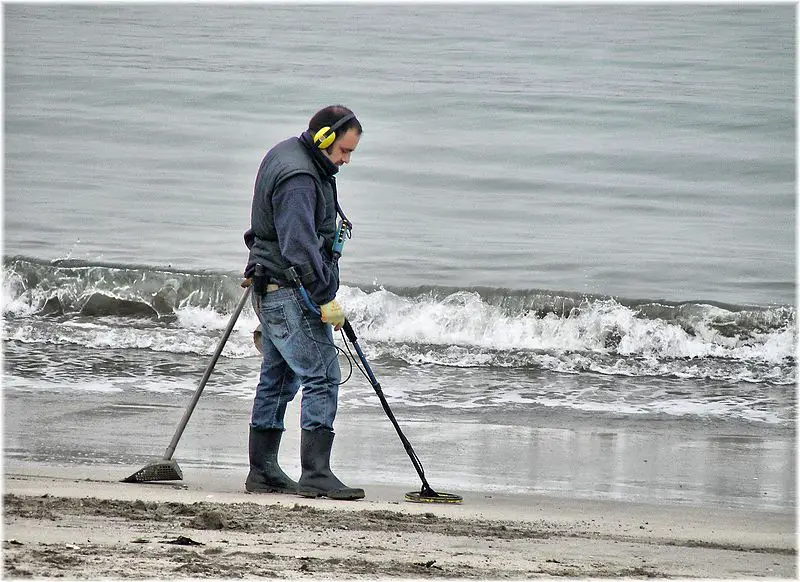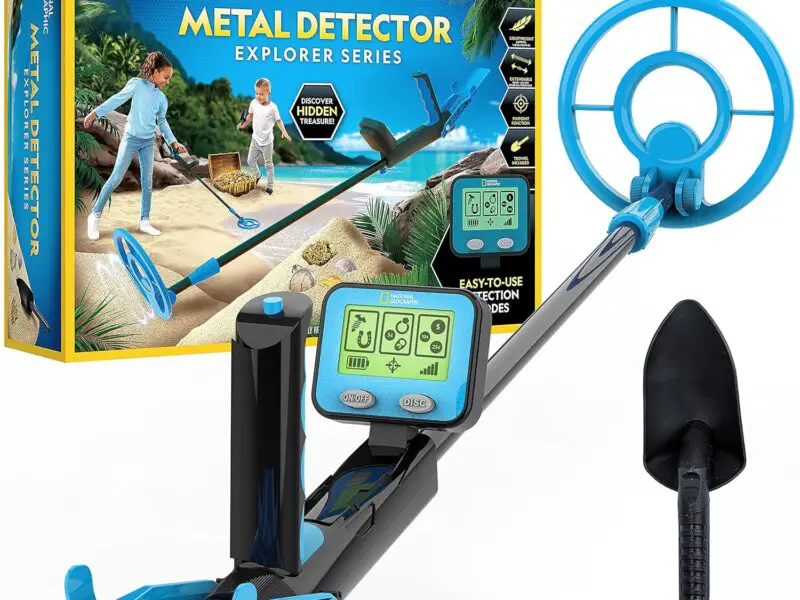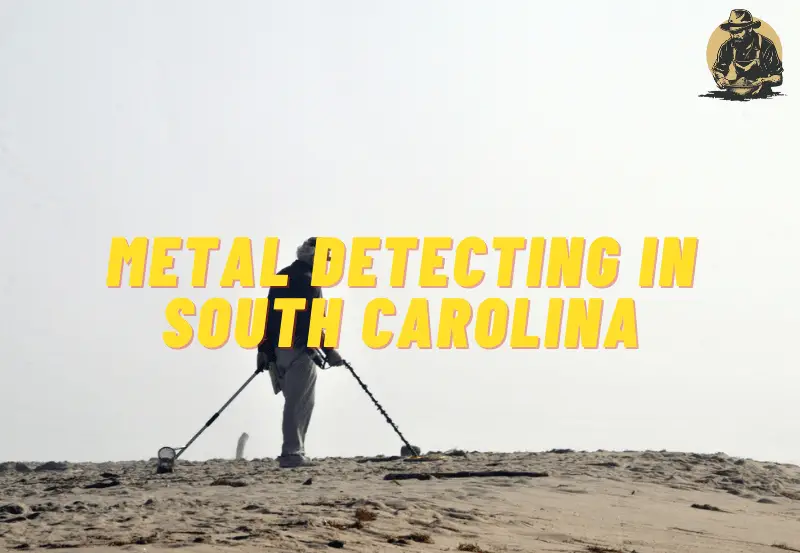
Essential Gear for Beach Metal Detecting
When preparing for a beach metal detecting adventure, having the right gear is crucial for success. Here are the essential items you should consider:
Metal Detector
- Waterproof: Essential for detecting near or in the water.
- Sensitivity: High sensitivity helps detect small or deeply buried items.
- Ground Balance: Important for handling mineralized soil and saltwater conditions.
Sand Scoop
A sturdy scoop is necessary for efficiently digging up targets in wet sand.
Headphones
Helps hear signals clearly by reducing background noise from waves and beachgoers.
Pouch or Bag
Useful for carrying finds and trash, keeping your hands free for detecting.
Other Accessories
Pinpointer, gloves, sun protection (sunscreen, hats, sunglasses).
Best Metal Detectors for Beach Detecting
Choosing the best metal detector for beach detecting can significantly enhance your treasure hunting experience. Here are some top models, each with its own set of advantages and disadvantages to suit different budgets and expertise levels:
Minelab Equinox Series
- Pros: Multi-IQ technology allows simultaneous multi-frequency operation, excellent for both wet and dry sand. Fully submersible up to 3 meters, with adjustable detecting modes for various targets.
- Cons: Higher price point, which may not be suitable for beginners.
Nokta Makro Legend
- Pros: Features a beach mode and waterproof design, making it ideal for wet sand and shallow water. Offers good target discrimination and is user-friendly.
- Cons: Slightly less effective in highly mineralized conditions compared to PI detectors.
Garrett AT Pro
- Pros: Versatile and suitable for both beginners and experienced detectorists. Waterproof up to 10 feet and features adjustable ground balance.
- Cons: Single frequency may struggle in highly mineralized saltwater environments.
Minelab Vanquish Series
- Pros: Affordable with Multi-IQ technology, offering good performance in salty environments. Lightweight and easy to use, making it ideal for beginners.
- Cons: Not fully waterproof, only the coil is submersible.
Tips for Successful Beach Metal Detecting
Preparation is key to a successful beach metal-detecting experience. Understanding the beach environment and preparing accordingly can significantly enhance your chances of finding valuable items.
Key Areas to Search
- Dry Sand: Easier to search and ideal for beginners, often yielding coins and jewelry.
- Wet Sand: More challenging due to higher mineralization but can reveal deeper buried items.
- Waterline: Requires waterproof equipment and can uncover heavier items that have sunk.
Timing and Conditions
- Tides: Low tide exposes more of the beach, revealing areas that are usually underwater. This can be an ideal time to explore less accessible areas.
- Post-Storm: Storms can shift sand and uncover hidden treasures that were previously too deep to detect. They can also deposit new items onto the beach.
Techniques for Effective Searching
- Research Your Beach: Understanding where people typically gather, swim, and play can help you identify the best spots to search. Observing the beach during busy times can provide valuable insights.
- Check the Weather: Ensure you check the weather before heading out to avoid interruptions due to rain or storms.
- Use the Right Gear: Wear appropriate clothing for the conditions and pack extra sunscreen, water, and snacks to avoid having to leave the beach to replenish supplies.
Understanding Beach Conditions and How They Affect Metal Detecting
Understanding beach conditions is crucial for successful metal detecting. Tidal changes significantly impact where items are likely to be found; low tide exposes more of the beach, revealing areas that are usually underwater and potentially rich with treasures. Storms and waves can cause beach erosion, shifting sand and uncovering hidden items that were previously too deep to detect. Wet sand, often found closer to the waterline, presents more challenges due to higher mineralization and salt content, which can interfere with metal detectors not equipped to handle such conditions. In contrast, dry sand is easier to search and ideal for beginners, often yielding coins and jewelry without the need for specialized equipment. Understanding these factors can enhance your beach metal-detecting experience and increase your chances of uncovering hidden treasures.
Beach Metal Detecting Etiquette
Beach metal detecting is a popular hobby that requires adherence to certain etiquette to ensure a positive experience for everyone. Here are some key points to keep in mind:
- Respect Other Beachgoers: Maintain a respectful distance from others to avoid disturbing their beach experience. Using headphones can help minimize noise from your metal detector.
- Fill in Holes: Always fill in any holes you dig to prevent accidents and maintain the beach’s appearance. This practice is crucial for safety and helps preserve the environment for other visitors.
- Remove Trash: Take any trash you find with you and dispose of it properly. This not only keeps the beach clean but also enhances the reputation of metal detecting enthusiasts.
- Comply with Local Laws: Research and follow local regulations regarding metal detecting. Some beaches may have restrictions or require permits, so it’s important to be informed to avoid fines or other issues.
- Return Valuable Items: If you find something that appears to be of significant value or has identifiable information, make an effort to return it to its owner. This can often be more rewarding than keeping the item.
Conclusion
Beach metal detecting offers a unique blend of adventure, relaxation, and the potential for discovering hidden treasures. From the thrill of uncovering lost jewelry and coins to the health benefits of walking along the shore, this hobby provides numerous rewards. The constantly changing beach environment ensures that each visit can bring new finds, making it an exciting pursuit for both beginners and seasoned detectorists. By following best practices, using the right equipment, and respecting beach etiquette, you can enhance your experience and contribute positively to the community. We encourage you to give beach metal detecting a try and share your discoveries and stories with fellow enthusiasts. Happy hunting!









